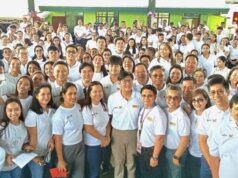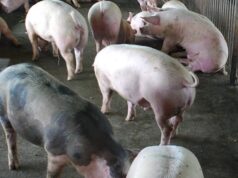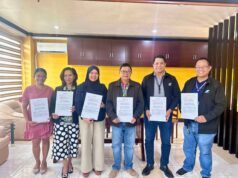CLARK FRREPORT — Lawmakers in the House of Representatives appear to be in a quandary over whether to loosen or tighten the rules that govern the entry of foreign investments in the local economic mainstream.
Rep. Susan A. Yap-Sulit (2nd District, Tarlac) hinted this in a media forum here on Friday when she described the cross-currents in ongoing debates on proposed legislations, as well as the economic charter-change bid by
pro-administration lawmakers, aimed at lifting restrictions on foreign investment inflows.
“Definitely, we need to lay down the welcome mat to overseas groups interested in pumping much needed capital in our country,” she told members of the Capampangan in Media, Inc. (CAMI), regular host of the weekly media forum “Balitaan” in partnership with Social Security System and Clark Development Corp.
Yap cited the case of Vietnam that during a given period attracted some $17 billion in foreign direct investments
(FDIs) compared to the Philippines’ measly $5 billion FDIs to stress her point that the country is losing out to neighboring Asian countries in luring investors to its shores.
What this calls for is an easing of foreign investment rules as spelled out in the Constitution, Yap said, adding that this is the reason that “we in the Nationalist People’s Coalition fully support Resolution No. 1 that Speaker Feliciano Belmonte Jr. filed to push for revisions in the economic provisions of the Charter.”
The House leader had earlier declared that “the easing of the restrictive economic provisions of the Constitution is now offi cially among the top priorities of the 16th Congress” via legislative amendment. Among the restrictions affect land ownership of foreigners, controlling stakes in media- related businesses, as well as academic institutions.
Belmonte expressed optimism on the chances of the “economic chacha” of pushing through as “there is now a consensus among Cha-cha advocates in the House of Representatives that they would focus on introducing only a simple amendment to the Constitution’s economic provisions, which says: ‘unless otherwise provided by law.’”
“We’re all for it,” Yap said but cautioned that political realities, like the upcoming presidential elections in 2016, could deter prompt approval of the so-called “economic cha-cha.” She likewise noted the lobby of the Bangko Sentral ng Pilipinas (BSP) for more regulatory teeth so it could look deeper into the make-up and provenance of foreign investments in domestic banks.
This could turn off prospective foreign investors, she said. “I don’t think this BSP bid will get congressional approval,” Yap declared but speculated that the central bank might just get its way in the end, given the current USled global move among banks to interdict the flow of funds linked to drug cartels and terrorists’ organizations.
BSP’s bid for more teeth is tied to a proposed enactment raising its capitalization from P50 billion to P200 billion as part of its longterm rehabilitation program initiated during the administration the late President Cory Aquino.
In the same forum, Yap also discussed the following: – The government’s five-year greening program will receive some P6 billion in additional funding this year. This program, now on its third year, calls for the planting
of five billion trees in denuded areas and those adversely affected by climate change such as the coastal areas in Eastern Visayas.
– She will continue to actively support the drive of Central Luzon stakeholders, consisting of businesses, lawmakers and local government officials, to prod the Aquino government to approve the railway project from
the Manila International Airport area to Clark.



